NCLW adds to editorial staff with new hire
North Carolina Lawyers Weekly has expanded its editorial team. Haviland Stewart has joined South Carolina Lawyers Weekly as a staff writer.

A native of northern California, Stewart has a bachelor’s degree in organizational communications with an emphasis in journalism and media from the University of Portland.
South Carolina, North Carolina NALS chapters meet in Charlotte
■ BY TERI SAYLOR
D
elight looks good on paralegals and legal support professionals, especially when they wear it to an event, decades in the making.
When the South Carolina and North Carolina chapters of the National Association of Legal Support Professionals hosted the 95-year-old organization’s annual legal education conference last month at the Sonesta Executive Park in Charlotte, it was the first time anyone can remember that NALS has ever convened in North Carolina.
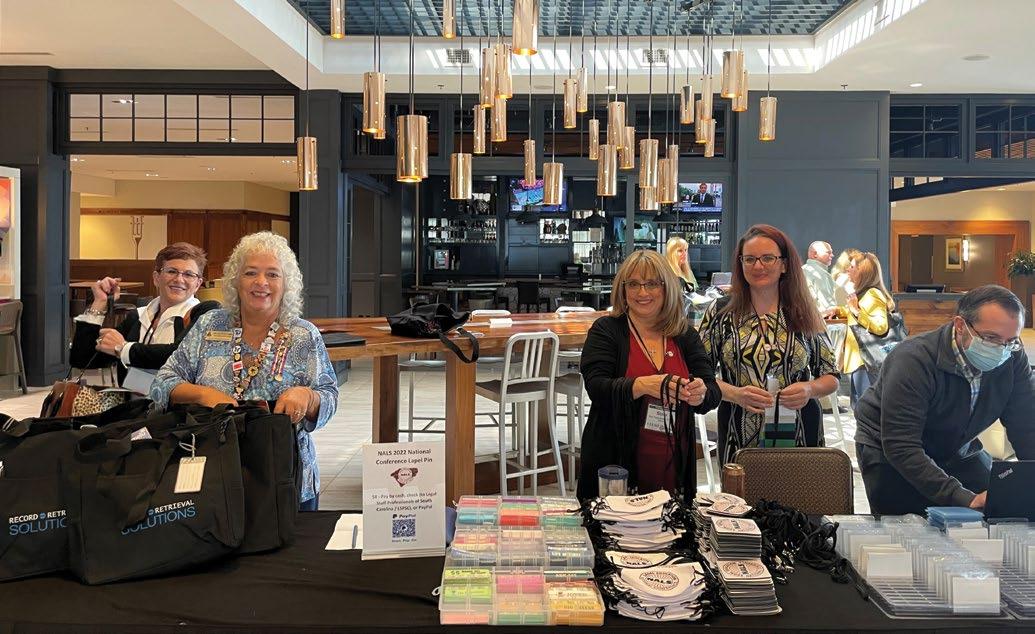
Legal Staff Professionals of South Carolina led the efforts, supplying a large contingent of members for
the conference planning committee. More than 20 members of the South Carolina Chapter attended the three-day event that kicked off on Sept. 15.
“To have the NALS education conference in Charlotte was epic for our South Carolina Chapter, said Katherine Helms, a litigation paralegal at the Samuels Reynolds Law Firm in Columbia and LSPSC president. “Many of our South Carolina members participated in planning, fundraising, and selling sponsorships, and it was a great way to showcase how eager and welcoming our chapter members are.”
LSPSC Greenville Chapter member Terri Coker, a paralegal with
Bannister, Wyatt and Stalvey, received the NALS national Mentorship Award.
Established in 1929 by Eula Mae Jett, NALS was incorporated as the National Association of Legal Secretaries in 1949 and renamed the National Association for Legal Support Professionals in 2021. For over 90 years, NALS has offered continuing legal education, certifications, and networking to legal support professionals across the country. NALS members represent every area of this industry from paralegals and legal assistants to legal administrators and office managers. NALS has
Court rules against Ford in groundbreaking case
■ BY DAVID BAUGHER
A district court has affi rmed that a woman whose husband killed himself more than a year after a devastating car accident will indeed recover a seven-fi gure judgement against the automaker while another part of the groundbreaking liability suit heads back for a new trial.
“The sole question is going to be whether this jury agrees with the last jury that the suicide was causally connected and what
amount of damages would be awarded,” said Ronnie Crosby of Parker Law Group.
Crosby represents Crystal Wickersham, the widow of John Wickersham, Jr., a pharmacist who lost an eye and suffered extensive facial injuries after his Ford Escape struck a curb on a rain-slicked road, went airborne and crashed into a tree.
The 2011 accident left the driver with the need for multiple surgeries and continuing pain, the medications from which ren-
dered him unable to do his job. Worries about medical bills came to a head the following year as his Consolidated Omnibus Budget Reconciliation Act insurance ended.
“The very month that his COBRA ran out from work is when he committed suicide,” Crosby said.
Wickersham’s wife sued Ford alleging that a defective airbag deployed at the wrong time caus-
She was on the dean’s list all for years in college, and was also a Chickasaw Nation Scholarship recipient during her college tenure.
Haviland Stewart
Stewart won several writing awards in college, including form the Pinnacle Awards and Columbia University Scholastic Press Association for profile writing, as well as from the College Media Association for breaking news coverage and arts and entertainment writing.
While working for the University of Portland’s newspaper, The Beacon, Stewart served as editor of its Living section, where she developed creative workshops for her college peers aimed at improving staff writing and interviewing skills.
She most recently was an editorial intern at Portland Magazine, where she wrote stories, created and edited editorial sections and spearheaded a companywide content migration, while also designing and distributing weekly emails.
“Haviland brings energy and passion to South Carolina Lawyers Weekly’s editorial team,” said Jason Thomas, interim editor of South Carolina Lawyers Weekly. “She has a creative mind that will help us reach new heights from a digital and social media perspective.
“Haviland’s reporting and writing skills will only bolster North Carolina Lawyers Weekly’s reputation as the go-to publication and website serving the Palmetto State’s legal industry.”
Stewart, who lives in Charlotte, can be reached via email at hstewart@nclawyersweekly.com.
Reach Thomas at jthomas@scbiznews.com
report
Page 2 INSIDE Attorney gets 5-year suspension for neglect Page 5 Gregory Packaging nets $21M in suit against FoodBuy LLC Page 5 Sexual assault victim awarded $8M; doctor faces charges BAR DISCIPLINE ROUNDUP VERDICTS & SETTLEMENTS VERDICTS & SETTLEMENTS VOLUME 34 NUMBER 20 ■ OCTOBER 10, 2022 ■ $8.50Part of the network NCLAWYERSWEEKLY.COM
Attendees gather at the National Association of Legal Support Professionals annual meeting in Charlotte . Photo/NALS
Staff
See COLLABORATION Page 6 ► See Ford Page 6 ► ‘EPIC’ COLLABORATION
BAR DISCIPLINE ROUNDUP
Attorney: Alexander Zolfaghari
Location: Wake County
Bar Membership: Since 2006
Disciplinary action: 5-year suspension
Background: The defendant was found guilty of neglecting client cases, failing to properly communicate with clients, abandoning clients’ cases, failing to refund unearned fees, making false statements during the disciplinary investigation, failing to abide by court orders, failing to appear for court hearings, closing his law practice without notifying clients, engaging intentional dishonest conduct, and engaging in conduct prejudicial to the administration of justice involving 28 separate matters.
On February 28, 2022, the North Carolina State Bar served the defendant with a
Notice of Reciprocal Discipline. The notice advised the defendant that the State Bar was considering imposing discipline based upon the Supreme Court of Arizona’s order of suspension. The defendant was required to file a response within 30 days of service of the Notice of Reciprocal Discipline if the defendant desired to object to the imposition of identical discipline. The defendant failed to respond within 30 days of service of the notice.
The Supreme Court of Arizona Final Judgment and Order establishes that the defendant engaged in conduct constituting violations of the following North Carolina State Bar Rules of Professional Conduct:1.3, 1.4, 1.15, 8.4(b), 8.4(c), and 8.4(d).
BAR DISCIPLINE ROUNDUP
Bar Discipline Timothy A. Gunther
Attorney: Timothy A. Gunther
Location: Wake County
Bar Membership: Since 1992
Disciplinary action: 2-year suspension
Background: The defendant was found guilty of perjury through falsifying his residential address to make himself appear eligible for the position of District 10F Court Judge during his campaign.
In 2019 Gunther ran for District 10F. To appear eligible for this role, Gunther falsified his residential address at the DMV to a show that he lived in District 10F.
While at the DMV Gunther got a new driver’s license and submitted a North Carolina Voter Registration Application which listed the false residential address in District 10F. He attested to and signed this application under penalty of perjury.
On December 19, 2019, Gunther submitted a Notice of Candidacy form stating that he lived at the false
address in a District he did not reside in. The lease at the false residential address was a sham lease created to further the false pretense that Gunther resided there.
It is a Class1 misdemeanor to give a false address to DMV in an application or renewal of a driver’s license. It is a Class 1 felony for a person to give false information willfully and knowingly on a Voter Registration Application. It is a Class 1 felony for a person to knowingly swear falsely with respect to any matter pertaining to any election. It is a Class F felony to make a false statement in any oath by any such person who is lawfully required to be sworn in as a pursuant to N.C.
By representing himself as eligible to be elected as a District Court Judge in District 10F when he was not eligible to be elected in 10F, Gunther engaged in conduct that was dishonest, fraudulent and deceitful that is a violation of rule 8.4(c) and failed to comply with the Code of Judicial Conduct in violation of ru l e 8.2 (b).
Court: UNC students can seek some COVID reimbursement
RALEIGH, N.C. (AP) — Students at the University of North Carolina can continue their lawsuit seeking monetary damages for fees they paid before in-person fall 2020 classes were canceled due to COVID-19, a state ap peals court ruled.
A three-judge panel of the Court of Appeals decided last week that a trial judge correctly last year refused to dismiss litigation filed by two stu dents against the UNC Board of Gov ernors. The students also sued on behalf of other students at the two schools who paid similar fees.
The lawsuit alleged a breach of con tract occurred when the students who registered for the fall 2020 semester paid health service, campus security and parking fees among others with an understanding that services and benefits would be provided, but they weren’t. The students alleged they
failed to receive proper refunds when campuses moved in-person classes online, “evicted all students from oncampus housing” and curtailed health services.
The board’s lawyers have written that students had been informed that the instruction format could change and that fee refunds would not be forthcoming if that occurred. The Board of Governors argued on the ap peal in part that the lawsuit should be dismissed on grounds of sovereign immunity, which blocks such litiga tion against state government unless an agency consents.
Court of Appeals Chief Judge Chris Donna Stroud said the plaintiffs ad equately alleged the existence of an implied contract, which can waive such immunity. The UNC board could ask the state Supreme Court to take up the case.
BAR DISCIPLINE ROUNDUP
Attorney: David A. Harley
Location: Wake County
Bar Membership: Since 1996
Disciplinary action: Reprimand
Background: Defendant was found guilty of failing to promptly render an accounting of entrusted funds upon client request [1.15(d)], failing to respond to inquiry from a regulatory authority [8.l(b)], neglecting a client’s case [1.3], engaging in conduct prejudicial to the administration of justice [8.4(e)], failing to communicate, [1.4], and charging an unreasonable fee [l .5(a)].
On April 29, 2022, the North Carolina State Bar served Harley with a Notice of Reciprocal Discipline. The Notice advised the defendant that the North
Carolina State Bar was considering imposing identical discipline based upon the Supreme Court of South Carolina’s Opinion imposing a Public Reprimand. The defendant was required to file a response within 30 days of service of the Notice of Reciprocal Discipline if he desired to object to the imposition of identical discipline. Harley did not respond to the State Bar’s Notice or otherwise show cause that imposition of reciprocal discipline would be unwarranted.
The defendant engaged in conduct constituting violations of the following North Carolina State Bar Rules of Professional Conduct: 1.3, l.5(a), l.15-3(e), 8.1(6), and 8.4(d). These Rule violations justify the imposition of reciprocal discipline in this State.
Judge installed as president of Conference of Clerks group
Granville County Clerk of Superior Court and Ex Officio Judge of Probate J. Yancey Washington was installed as the new president of the N.C. Con ference of Clerks of Superior Court for 2022-2023 on Sept. 22, according to a news release.
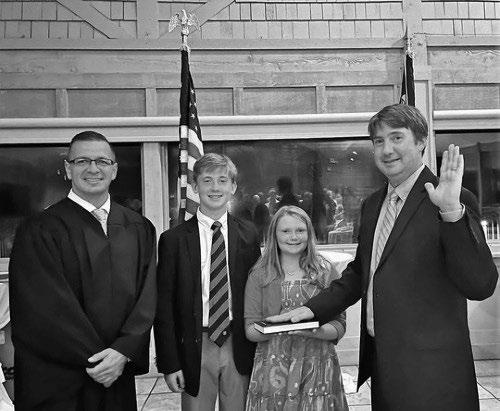
Washington has been active in the conference and with the North Caroli na Administrative Office of the Courts (NCAOC) since his tenure as clerk of superior court began in 2014. He has served on numerous committees for the North Carolina Judicial Branch and the North Carolina School of Gov ernment at Chapel Hill.
“It is an honor and a privilege to serve as president of the Conference,” Washington said in the release. “This will be an important year for clerks statewide as the North Carolina Ad ministrative Office of the Courts rolls out the initial phase of eCourts which will transform how North Carolinians interact with their state courts.”
As incoming president, Washing ton chooses an executive committee comprised of clerks who serve in ur ban and rural counties. The 2022-23 executive committee members include the following clerks of superior court:
• Mark Hammonds, Anson County
• Sandie Chappell, Davidson County
• Lisa Johnson-Tonkins, Guilford County
• Hunter Plemmons, Haywood County
• John Deaton, Montgomery Coun ty
• Mark Kleinschmidt, Orange County
• F. Blair Williams, Wake County
The committee meets monthly and discusses business as it relates to their roles, the court system, county issues, and the association.
The Conference of Clerks of Supe rior Court was created in 2006 by the N.C. General Assembly to improve the administration of justice in North Carolina. The Conference, consisting of the 100 elected clerks from across the state and supported by an execu tive director and administrative staff, works to improve public accessibility to the courts through the clerk of su perior court, serve as a resource for the clerks in key areas of court ad ministration, and to act as a liaison on behalf of all elected clerks of superior court to both governmental and nongovernmental stakeholders.
report
NORTH CAROLINA LAWYERS WEEKLY I October 10, 20222 / NEWS
Staff
Clerk J. Yancey Washington (right) is sworn in by Associate Justice Phil Berger Jr. Photo/ NCAOC
Attorneys merge with Charlotte firm’s civil team
■ BY JASON THOMAS jthomas@scbiznews.com
Hedrick Gardner Kincheloe & Garofalo has announced that the attorneys of Nichols, Choi, and Lee have joined Hedrick Gardner’s civil team to further strengthen service capabilities to mutually benefit both firms and their cli ents.
Through this union, Hedrick Gardner welcomes four new at torneys to the firm’s Litigation Group, according to a Hedrick Gardner news release. M. Jack son “Jack” Nichols, Anna Baird Choi, Catherine E. Lee, and Grant Simpkins joined the firm’s Raleigh office in October.
“We are delighted to have these four impressive attorneys join He drick Gardner. With the addition of this talented group, the firm will expand its breadth of practice ar eas to include administrative law with an emphasis on occupational and professional licensing,” said Hedrick Gardner’s Managing Part
ner Paul Lawrence in the release.
All four of the attorneys are rec ognized among the top administra tive/regulatory law practitioners in North Carolina, with a com bined 80-plus years of experience representing clients in adminis trative/regulatory law matters. Additionally, they represent over a dozen occupational/professional licensing boards across the state.
“All of us at Nichols, Choi and Lee are extremely pleased to join the Hedrick Gardner team. This is a very exciting event for our at torneys and staff, as well as our existing and future clients,” Baird Choi said in the release.
Additional information regard ing Hedrick Gardner’s newest at torneys:
As partner, Baird Choi focuses her practice on administrative law/regulatory law. For over two decades Anna has served as coun sel to the N.C. Licensing Board for General Contractors. She advises the General Contractor’s Board and eight other occupational/pro fessional licensing boards, advis ing on all matters including li censing, minimum qualifications, rulemaking, disciplinary actions, and personnel issues.
As partner, Lee’s legal prac tice focuses on employment law,
administrative law, civil litiga tion, and contract disputes, with an emphasis on matters involving state occupational/professional li censing boards and public employ ment. Catherine also serves as general counsel to several North Carolina occupational licensing boards.


Nichols is of counsel at Hedrick Gardner; he concentrates his prac tice on public policy development and advocacy, administrative law, and civil litigation. He has taught Administrative Law and Consti tutional Law at the University of North Carolina at Chapel Hill and Campbell University School of Law.
Associate Simpkins’ practice primarily focuses on administra tive law with an emphasis on oc cupational/professional licensing. He earned his law degree from Campbell University School of Law in 2019. After graduation, he served as the Campbell Law School Wallace Leadership Fellow from 2019-20.
Cranfill Sumner announces new attorneys
Cranfill Sumner LLP today has added three new attorneys to its staff. Maria Aguilera, Devin Hon barger, and Kelley Petcavich have joined the firm as associate attor neys.

Aguilera is a civil litigation asso ciate attorney based in the Charlotte of fice. She graduated from Wake Forest University School of Law where she served as the Presi dent of the Latinx Law Student Asso ciation, founded the law school’s first Latinx scholarship for incoming stu dents, and spear headed the law school’s first stu dent-led Diversity Equity and Inclu sion advisory com mittee to the Dean Honbarger is a civil litigation as sociate attorney based in the Ra leigh office. He graduated with honors from Camp bell University School of Law and previously worked as a summer asso ciate and intern at the firm. While at Campbell, he participated in the Old Kivett Moot Court Competition, the Innovate Capital Business Law Clinic, trial advocacy, and the Vet erans’ Pro Bono Project. He served in the U.S. Army from 2008 until 2022 where he served as a combat medic, warrant officer and Apache helicopter pilot.
Petcavich is an associate at torney based in the firm’s Raleigh
office who focuses her practice on medical malpractice, professional liability, and general civil litigation matters. She received her law de gree from the University of North Carolina School of Law, her bache lor’s degree from Meredith College, and her paralegal certificate from Duke University.
Ellis & Winters welcomes attorney in Raleigh

Ellis & Winters has welcomed attorney Dale Clemons to the firm’s Raleigh office.
Before joining Ellis & Win ters, Clemons served as a Judi cial Law Clerk for the United States Bankruptcy Court in the Middle Dis trict of North Car olina. Clemons fo cuses his practice on bankruptcy and reconstructing, construction law and real estate fi nance.
Clemons earned his law degree from the University of California, Davis, School of Law. Previously, he worked as a program analyst for the Administrative Office of the United States Courts for several years.
Charlotte attorney appointed to new role with firm
Bradley Arant Boult Cummings LLP has announced that five of the firm’s associates have been appoint ed to DRI Young Lawyers Commit tee leadership roles, including one in its Charlotte office.
With more than 1,500 members internationally, DRI is the largest international membership organi zation of attorneys defending the in terests of business and individuals
in civil litigation. The DRI Young Lawyers Committee is comprised of lawyers within 10 years of bar admis sion who are prac ticing across every substantive area within the defense bar.
The Bradley as sociate appointed to a leadership role in Charlotte Sam Dearstyne, who was named to the Young Lawyers Steering Committee and Corporate Counsel Development Subcommit tee.

Deuterman Law Group adds associate attorney


Attorney Chase Coble has joined the Deuterman Law Group as an associate attorney in the personal injury practice group, where he will be representing clients in their auto accident, medical malpractice and nursing home neglect cases.

Coble, who grew up in Burl ington, earned his juris doctor from the Univer sity of Louisville Brandeis School of Law in Kentucky. He graduated from Appalachian State University with a Bachelor of Science in History and So cial Studies Educa tion.

He is a member of the Kentucky Justice Associa tion, the N.C. Advocates for Jus tice, the N.C. Bar Association and the Greensboro Bar Association.
Coble, who grew up in Burling ton, earned his juris doctor from the University of Louisville Brandeis School of Law in Kentucky. He graduated from Appalachian State University with a Bachelor of Sci ence in History and Social Studies Education.
He is a member of the Kentucky Justice Association, the N.C. Advo cates for Justice, the N.C. Bar As sociation and the Greensboro Bar Association.

ABBREVIATED PUBLIC NOTICE FOR APPOINTMENT OF NEW MAGISTRATE JUDGE
The Judicial Conference of the United States has authorized the appointment of a full-time United States Magistrate Judge for the Eastern District of North Carolina at Greenville.
The current annual salary of the position is $205,528. The term of office is eight years. A full public notice for the magistrate judge position is posted in the Office of the Clerk, U.S. District Court for the Eastern District of North Carolina, 310 New Bern Avenue, Raleigh, NC, 27601. The full public notice and application form are available at: www.nced.uscourts.gov. Interested persons may contact the Clerk of Court for additional information.
Application packages should be marked “confidential” and mailed to: ATTN: Clerk of Court, U.S. District Court EDNC, 310 New Bern Avenue, Room 574, Raleigh, NC 27601. Applications must be submitted only by applicants personally and must be received no later than 5:00 p.m. on October 24, 2022. Application packages should include an original application and eight copies of each of the following: 1) cover letter; 2) application form; 3) resume; 4) official transcripts from law school; and 5) any other materials desired to be considered.
The court reserves the right to modify the conditions of or to withdraw this job announcement.
NORTH CAROLINA LAWYERS WEEKLY I October 10, 2022 NEWS / 3
M. Jackson “Jack” Nichols
Catherine E. Lee Anna Baird Choi
Maria Aguilera
Kelley Petcavich
Sam Dearstyne
Devin Honbarger
Dale Clemons
Chase Coble
Grant Simpkins
LAWYERS IN THE NEWS
$1.1M for man killed when boat capsizes
■ BY HEATH HAMACHER
The estate of a man killed when the fishing boat he was on cap sized outside Beaufort Inlet has settled its wrongful death claim for $1.1 million.
The man was represented by Robert Zaytoun, Charles McCotter Jr., John Taylor, and PJ Puryear Jr. of Zaytoun Ballew & Taylor in Raleigh, who said that on Nov. 8, 2020, their client, William “Bill” Merriman IV of Wilmington, set out on a fishing expedition with his lifelong friend and fishing partner George Andrews of Raleigh aboard Andrews’ 35-foot boat.
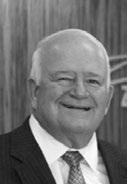
Two days later, the boat was found capsized. The men’s bodies have not been recovered.
The Andrews estate commenced federal maritime litigation, plain tiff’s attorneys said, seeking exon eration and limitation of liability pursuant to admiralty law. Mer riman’s estate alleged that such protections did not apply and filed claims for negligence and wrong ful death. In those claims, the plaintiff asserted that because Andrews was on the vessel as an operator and owner, he had nondelegable duties to Merriman, in cluding providing for safe naviga tion, safe and prudent operation of the vessel, and not setting sail in dangerous conditions. According to Merriman, Andrews was neg ligent by setting sail in the face of a “small craft advisory” issued by the National Weather Service when winds had reached danger ous speeds.
Merriman further contended that Andrews was negligent by opting not to equip the $500,000 boat—named the Strike Zone— with an emergency position-in dication radio beacon (EPIRB), a $1,000 device that would have alerted a nearby Coast Guard sta tion when the vessel capsized.
“This signaling more likely than not would have allowed for an immediate and direct response by a Coast Guard rescue vessel to the precise location where the boat capsized in rough-sea shoal
conditions,” Merriman’s attorneys wrote in an email to North Caro lina Lawyers Weekly.
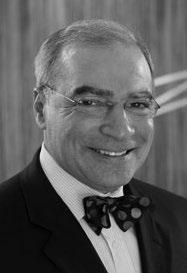
Instead, the boat drifted for two days until being spotted by a sail ing vessel. Merriman also claimed that Andrews was negligent by not leaving behind a “float plan” that would have given the Coast Guard a specific route planned for the trip.
Merriman’s attorneys said that while the Coast Guard’s report was not admissible as evidence, it concluded that Andrews was at fault for not filing a float plan, set ting sail in the face of the small craft warnings, and for his general inexperience in navigating boats the size of Strike Zone.
Merriman’s attorneys said that Andrews’ estate in counterclaims sought declaratory judgment that liability could not be determined and its own negligence and wrong ful death claims based on a pho tograph obtained during discovery showing Merriman at the boat’s helm as the boat was heading to get gas.
“However, discovery also re vealed a second photo, ignored by the Andrews estate, that later showed both men at the helm as the boat was leaving Beaufort har bor for the voyage, with Mr. An
SETTLEMENT REPORT — WRONGFUL DEATH
Amount: $1.1 million
Injuries alleged: Death
Case name: In the matter of Debo rah Andrews, Executor of the Estate of George H. Andrews (Deceased)
Court: U.S. District Court for the Eastern District of North Carolina Case No.: 4:21-cv-00068
Judge: Louise Flanagan
Date of settlement: 2022
Attorneys for plaintiff: Robert Zaytoun, Charles McCotter Jr., John Taylor, and Paul Puryear Jr. of Zay toun Ballew & Taylor in Raleigh
Attorneys for defendant: John Branch and Kieran Shanahan of Nelson Mullins in Raleigh and Geoffrey Losee and Corey Zurbuch of Roundtree Losee in Wilmington
drews sitting closest to the throt tle and joystick navigation which steered the Scout,” the attorneys wrote. “The boat capsized almost an hour later while attempting to cross the east side of the Cape Lookout Shoals.”
Andrews was represented by John Branch and Kieran Shana han of Nelson Mullins in Raleigh and Geoffrey Losee and Cory Zur buch of Roundtree Losee in Wilm ington. Losee declined to comment.
Merriman moved to dismiss the counterclaims, making several ar guments, but the parties reached a mediated settlement before the court could rule on the motion.
“When the owner of a boat is on the vessel, the law makes clear that absent special circumstances, it does not matter that your pas sengers agree to go on the voyage, or whose hands are on the wheel,” Zaytoun said. “While we were ful ly prepared to take this matter to trial, we are pleased that we could assist Mrs. Merriman to reach an early resolution so as to hopefully put closure on this sad chapter of her life.”
Bicyclist injured in hit-and-run settles for $1M
■ BY DAVID BAUGHER
A cyclist injured by a hit-andrun driver has settled a case against his insurers for $1 million, according to the attorney in the case.
“We did some verdict surveys and a million was beyond most of the ones we could find,” said plain tiff’s lawyer Lee Olive of The Ol ive Law Firm. “The local verdicts seemed to be less than that.”
He said that his client, an avid cyclist, was struck by an unknown vehicle that left the scene. The 54-year-old man, whom Olive was not at liberty to identify, suffered extensive injuries including frac tures to his collarbone and one hip socket.
Olive said that an eyewitness identified the suspected vehicle and someone pursued it, even pro viding what they believed to be a tag number for police. After fur ther investigation, however, the
culprit remained unknown.
“We figured out what happened was that they followed the wrong car,” Olive said. “The car that ac tually hit him did get away.”
According to the attorney, two separate policies were at stake in the matter. The uninsured motor ist carrier provided its quartermillion-dollar limits with the rest of the money coming from an ex cess policy.
More than $75,000 in medical bills and more $332,000 in lost wages were identified in the case.
Olive’s client eventually opted for a partial hip replacement af ter 16 months of physical therapy failed to correct his injuries. He said the man ultimately made a decent recovery.
“He’s back to cycling so I guess that’s the good ending,” he said.
Olive said the matter was set tled before any suit was filed and he listed no attorneys for the in surers.
SETTLEMENT REPORT — WRONG FUL DEATH
Amount: $1.1 million
Injuries alleged: Death Case name: In the matter of Debo rah Andrews, Executor of the Estate of George H. Andrews (Deceased) Court: U.S. District Court for the Eastern District of North Carolina Case No.: 4:21-cv-00068
Judge: Louise Flanagan Date of settlement: 2022
Attorneys for plaintiff: Robert Zaytoun, Charles McCotter Jr., John Taylor, and Paul Puryear Jr. of Zay toun Ballew & Taylor in Raleigh Attorneys for defendant: John Branch and Kieran Shanahan of Nelson Mullins in Raleigh and Geoffrey Losee and Corey Zurbuch of Roundtree Losee in Wilmington
■ PUBLISHER
Liz Irwin
lirwin@bridgetowermedia.com
■ INTERIM EDITOR
Jason Thomas jthomas@scbiznews.com
■ EDITORIAL
Haviland Stewart, Reporter hstewart@nclawyersweekly.com
Scott Baughman, Digital Media Manager sbaughman@mecktimes.com
■ ADVERTISING
Sheila Batie-Jones, Advertising Account Executive sbatie-jones@sclawyersweekly.com
■ ACCOUNTING & ADMINISTRATIVE
Michael McArthur, Business Manager

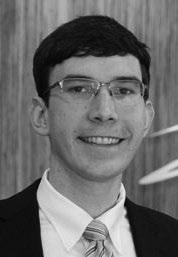
mmcarthur@bridgetowermedia.com
■ CIRCULATION
Disa Ehrler, Audience Development Manager dehrler@bridgetowermedia.com
Circulation: 1-877-615-9536 service@bridgetowermedia.com
■ PRODUCTION & OPERATIONS
Bradley Redmond, Director of Production John Reno, Production Specialist
Corey Edwards, Production Specialist
©2022 BridgeTower Media. Material published in North Carolina Lawyers Weekly is compiled at substantial expense and is for the sole and exclusive use of purchasers and subscribers. The material may not be republished, resold, recorded, or used in any manner, in whole or in part, without the publisher’s explicit consent. Any infringement will be subject to legal redress.
Established 1988 919-829-9333 • 1-800-876-5297
Charlotte office: 130 North McDowell Street, Unit B, Charlotte, NC 28204 (704) 377-6221 • (704) 377-4258 fax: www.nclawyersweekly.com
For subscription questions 1-877-615-9536 service@bridgetowermedia.com
North Carolina Lawyers Weekly [ISSN10411747] [USPS 002-904] is published
biweekly every other Monday with General Statewide Circulation for $410.36 per year by North Carolina Lawyers Weekly, 130 North McDowell Street, Unit B, Charlotte, NC 28204
Periodicals postage paid at Charlotte, North Carolina 28228-9998.
POSTMASTER: Electronic Service Requested. Send address changes to: North Carolina Lawyers Weekly, Subscription Services, P.O. Box 1051, Williamsport, PA, 17703-9940
North Carolina Lawyers Weekly is a publication of BridgeTower Media, 222 South Ninth Street, Suite 900, Minneapolis, MN 55402.
NORTH CAROLINA LAWYERS WEEKLY I October 10, 20224 / VERDICTS & SETTLEMENTS
Robert Zaytoun
John Taylor
Charles McCotter Jr. Paul Puryear Jr.
"Helping lawyers practice better, more efficiently, and more profitably."
Gregory Packaging nets $21.2M settlement
■ BY HAVILAND STEWART hstewart@nclawyersweekly.com
Foodbuy LLC sued Gregory Packaging Inc. for $1 million, instead Gregory Packaging was awarded $21.2 million in a recent decision.
Gregory Packaging is a 100-year-old juice manu facturer that has worked with Foodbuy the larg est food service company in the world – since 2011. Foodbuy is a group purchasing organization based in the United Kingdom, with their North American headquarters in Charlotte.
According to Gregory Packaging’s council, Russ Ferguson of Womble Bond Dickinson, after years of be-ing in contract with one another Gregory Packaging began suspecting that they were being overcharged by Foodbuy and therefore didn’t pay their latest in-voice.
“At the end of Foodbuy’s relationship Gregory Packaging started to see that something was going on,” Ferguson said. “There were certain indications that they were being overcharged by Foodbuy, so there was about a million dollars of invoices that Gregory packaging didn’t pay. And [Gregory Pack aging was] working that out with Foodbuy when Foodbuy sued them to get the million dollars.”
Gregory Packaging counterclaimed and ended up winning $9.2 million from Foodbuy for its breach of contract.
Foodbuy appealed that decision and as a result Gregory Packaging cross appealed.
After re-examination, the judge on this case, Judge Whitney, ordered another $14 million be paid to Gregory Packaging after discovering that Food buy was guilty of was more than just a breach of contract, but also unfair and deceptive trade prac tices.
Unfair and deceptive trade practices regarding this case can be seen through Foodbuy concealing
their breach of contract and sys temically overcharging Gregory Packaging.
During this examination it was also found that these unfair and deceptive trade practices done by Foodbuy were not unique to Greg ory Packaging, and ultimately re sulted in their loss of $21.2 million.
According to Ferguson, this rul
*Is this a verdict or a settlement? Verdict
Type of case: Federal Breach of Contract and Unfair and Deceptive Trade Practices Act
Amount: $23,380,947.42
Injuries alleged: Beach of contract; Unfair and Deceptive Trade Practices
Case name: Foodbuy, LLC v. Gregory Packaging, Inc.
Court: Western District of North Carolina Case No.: Case No. 3:16-CV-00809
Judge: The Honorable Frank D. Whitney
Date of verdict or settlement: August 4, 2022
Bench or jury trial? [for verdicts]: Bench Trial Attorney(s) for plaintiff (Foodbuy, Coun terclaim Defendant) and their firm(s): Mark Nebrig, Fielding Huseth - Moore & Van Allen
Attorney(s) for defendant (Gregory Packag ing, Counterclaim Plaintiff) and their firm(s): Russ Ferguson, Sam Hartzell - Womble Bond Dickinson
Was the opposing represented by counsel? Yes
Were liability and/or damages contested? Yes
Has the judgment been successfully collect ed? Partially
ing will add some much-needed clarity to the poli cies regarding unfair and deceptive trade practices.
“The law around the Unfair and Deceptive Trade Practices Act has been really muddled for a long time,” Ferguson said. “And that’s particularly true when there’s a contract between parties, because there are all sorts of laws around when you can ap ply the Unfair and Deceptive Trade Practices Act
and when you cannot. I think that [Judge] Whit ney’s order really provided some much-needed clar ity for future litigants on the Unfair and Deceptive Trade Practices Act.”
Foodbuy’s council declined to comment on this verdict.
Sex assault victim awarded $8M; doctor faces more charges
■ BY HAVILAND STEWART hstewart@nclawyersweekly.com
An $8 million judgment was entered by the Su perior Court of New Hanover County, N.C., for a patient who was sexually assaulted by her dentist while she was under anesthesia.
The patient was having her wisdom teeth extracted at Wilmington Oral Surgery and was sedated when her oral surgeon, Dr. Michael Hasson, sexually assaulted her.
“Our client placed her sacred trust in this surgeon to care for her while she was at her most vulnerable and then the unthinkable happened,” David Sherlin of Epstein Sherlin PLLC said. “For this man to commit these horrific acts after placing his patients under sedation is beyond reprehensible.”
According to Sherlin, Hassen is now facing 29 criminal counts of similar conduct against other patients of his. Hasson is currently charged with nine counts of felony second degree forcible
sex offense, three counts of felony indecent liberties with a minor, one count of felony statutory sex offense of a person under 16, and 16 counts of misdemeanor sexual battery.
According to Sherlin, some of victims learned they were assault ed after having memory of being assaulted while in altered states of consciousness, feeling pain and discomfort in their vaginal region after leaving Hasson’s office, and some reported por tions of their clothes missing after Hasson treated them.
“This judgment and award provide some solace to our client that the Court recognized the physical and emotional toll that she suffered as a result of the atrocious assault that was committed on her,” Sherlin said.
The plaintiff was awarded $2 million in compen satory damages and $6 million in punitive damages.
Is this a verdict or a settlement? Judgment
Type of case: Negligence
Amount: $8,000,000 ($ 2,000,000 in compensa tory damages, $ 6,000,000 in punitive damages)
Injuries alleged: Physical pain and emotional suffering related to sexual assault
Court: New Hanover County Superior Court
Date of verdict or settlement: March 2022 (judgment and award)
Attorney(s) for plaintiff and their firm(s): David L.Sherlin, Epstein Sherlin PLLC, Raleigh, N.C.


Was the opposing represented by counsel? No
Were liability and/or damages contested? No
Has the judgment been successfully collect ed? No
INC.
INC.
INC.
INC.
INC.
INC.
INC.
INC.
INC.
INC.
INC.
NORTH CAROLINA LAWYERS WEEKLY I October 10, 2022 VERDICTS & SETTLEMENTS / 5 MEDIATION, INC. MEDIATION, INC. MEDIATION,
MEDIATION,
MEDIATION,
MEDIATION,
MEDIATION,
MEDIATION,
MEDIATION,
MEDIATION,
MEDIATION,
MEDIATION,
MEDIATION,
MEDIATION, INC. MEDIATION TRAINING Approved by the Dispute Resolution Commission and the NC CLE Board! Andy Little, Lead Instructor For more information, please contact us at: 1-888-842-6157 or info@MediationIncNC.com Visit our web site at www.MediationIncNC.com Superior Court Mediation Training OCTOBER 24 - 28, 2022 RALEIGH, NC Superior Court Mediation Training JANUARY 23 - 27, 2023 CHARLOTTE, NC Superior Court Mediation Training MAY 8 - 12, 2023 RALEIGH, NC
Russ Ferguson
David L. Sherlin
I think that [Judge] Whitney’s order really provided some much-needed clarity for future litigants on the Unfair and Deceptive Trade Practices Act.
Russ Ferguson, WombleBondDickinson
its headquarters in Indianapolis.
The Charlotte event, marking the 71st Annual NALS Conference, welcomed 105 attendees, 10 exhibitors and 25 speakers, said membership director Mark Lewis.
He credits the work of the chapters for keeping NALS strong over the years and for the success of conferences like the one in Charlotte.
“Chapters help drive membership, and we know success starts at the local level,” he said.
The South Carolina Chapter has been a part of NALS for 57 years.
Starting in 1958, South Carolina was home to local legal secretaries’ associations in Columbia and Green-

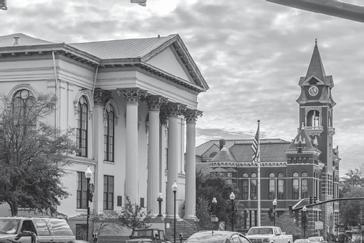

/ NALS chapters join for event
ville. Chapters followed close behind in Charleston and York.
“These four chapters formed the South Carolina Association of Legal Secretaries in 1965 when they passed resolutions to affiliate with NALS,” Helms said. “The association became known as Legal Staff Professionals of South Carolina in 1998.”
Today, LSPSC has 100 members, some who belong to five local chapters in Charleston, Hilton Head, Orangeburg, Columbia and Greenville, and others who are members at large.
The North Carolina NALS Chapter launched this year, said president Alma Friedrich, a paralegal with Poyner Spruill of Raleigh. In 10 months, the organization has grown to 35 members.
“We have hosted continuing legal education programs, held in-person networking events, and attained accreditation from the North Carolina State Bar Paralegal Division for continuing paralegal education, and recently published our chapter website,” Friedrich said.
Friedrich added that having the NALS conference in North Carolina was even more special because it coincided with the new chapter’s formation. She attended along with the chapter vice president Joan O’Neal.
“What struck me the most was the passion for the legal profession everyone in attendance displayed, genuine care to help each other succeed, and deep friendships demonstrated by NALS members to one another from
across the country,” she said.
Both associations hope having the national conference in Charlotte will help spur growth and inspire members to continue staying engaged with each other and to invite their colleagues to join.
Helms plans to focus on student recruitment in the months ahead.
“With many seasoned professionals retiring, we are looking toward the future of the legal field and our associations,” she said. “I believe that future lies in our student members, and my goal this year is to engage schools with legal/paralegal degree programs.”
Next year’s NALS Legal Education Conference will be held in Houston, Texas.
FORD / Court rules against Ford in groundbreaking case

ing the driver’s face to hit the gearshift lever. Initially, she prevailed in a 2016 trial in which jurors awarded $4.65 million despite deciding that the decedent bore 30 percent responsibility.
However, the auto giant appealed the matter, and the wrongful death portion of the judgment, which comprised a majority of the award, was ultimately thrown out by the Fourth Circuit based on clarifications by the South Carolina Supreme Court. The state’s
high court indicated that there was no presumption that death by suicide is unforeseeable as a matter of law however its response prompted the Fourth Circuit to find that the district court did not apply the proper proximate cause framework to the case when it instructed the jury.
Still, the appellate ruling left intact the $1.9-million verdict on Wickersham’s survivorship claim. Moreover, the district court rejected the automaker’s assertion that the plaintiff showed no evidence that Wickersham’s taking his own
Cranfill Sumner LLP is celebrating its 30th Anniversary this month. Founded in 1992, the firm has become a pillar of the legal community across North Carolina. Originally founded in Raleigh, the firm has maintained o ces in Charlotte and Wilmington for more than 20 years.




“For three decades, Cranfill Sumner has been built on the foundation of our core principles of teamwork, reputation, and client service. And, that’s a legacy that we are proud to continue,” said Marshall Wall, Managing Partner of Cranfill Sumner.
In recent years, the firm has expanded its footprint in order to better serve its clients in more focused areas of law including aviation, admiralty and maritime law, elder law and estate planning, intellectual property, international business law, and white collar and special investigations. “Our attorneys and sta are dedicated to continuing the tradition of the ‘Cranfill Way,’ practical and e cient representation tailored for each client.”
“Whether it’s working for privately held companies, municipal and governmental entities, insurers, small-business owners or professional service providers, our people are the hallmark of our success,” said Wall. “When you have the right talent, the possibilities are endless – we are excited for the next 30 years!”
Ronnie Crosby, Parker Law Group
life was something that the company could have envisaged as a result of the airbag problem and denied its motion for judgement on the issue as a matter of law.
“Contrary to Ford’s contention,” wrote Judge David Norton, “the court does not find it a far stretch for a jury to conclude that suicide was a specifically foreseeable consequence of a defectively deployed airbag when presented with evi-
dence that airbags commonly result in facial injuries like Wickersham’s, that those injuries cause severe chronic pain, and that severe chronic pain is directly linked to suicidal ideation and suicide.”
Now, the two parties return to court for a renewed fight over the wrongful death claim.
“It is kind of an oddly postured case,” said Crosby. “There is a finding that the product is defective and that it caused his injuries. It is just whether or not it is causally related to the suicide.”
He said expert testimony and medical records have created an especially strong evidence chain for jurors to follow which may have been lacking in the handful of previous matters in South Carolina which attempted similar arguments linking suicide to injuries from a defective product.
“All the cases that preceded it were thrown out by a court before they ever got to a jury,” he said.
Crosby said that he’s optimistic about the matter which he said had already succeeded once in front of a jury.
“It is like anything else,” he said. “There are no guarantees but I feel good about it.”
Crosby listed J. Kenneth Carter, Jr. of Turner Padget Law as representing the defense. Neither Carter nor Ford’s media relations contact returned a call requesting comment for this story.
NORTH CAROLINA LAWYERS WEEKLY I October 10, 20226 / NEWS WW W.CSHL AW .COM RA LEIG H 919 828 510 0 CHAR LOTTE 704 332 8300 WIL MINGTON 910 777 600 0
A district court has affirmed that a woman whose husband killed himself related to an automobile accident will recover a seven-figure settlement against Ford Motor Co., while another part of the groundbreaking suit heads to trail. Photo/Associated Press
Continued from 1 ► Continued from 1 ► COLLABORATION
It is kind of an oddly postured case. There is a finding that the product is defective and that it caused his injuries. It is just whether or not it is causally related to the suicide.
Opinions
Domestic Relations
Equitable Distribution – Valuation –Marital Home – Unequal Division
Plaintiff Melissa Mosiello testified to the tax value of the marital home, the current mortgage balance and the mortgage balance on the date of separation. Her equitable distribution affidavit valued the land, the home and the encumbrances on the land. The trial court’s $153,000 valuation is reached by subtracting the encum brances from the gross value of the property, and the valuation falls with in the range of evidence at trial.
We affirm the trial court’s equitable distribution order.
Where the trial court’s well-rea soned decision considered the factors set out in G.S. § 50-20(c) and deter mined that three of those factors fa vored an unequal division of marital property, the trial court did not abuse its discretion in ordering an unequal division.
Even though the equitable distribu tion order was entered 15 months af ter the equitable distribution hearing, defendant Anthony Mosiello cannot show prejudice from the delay. The parties’ most significant asset was the marital residence. Any changes to the value of the residence between the hearing and the entry of the order did not harm Anthony because the trial court distributed the entirety of the marital residence to Melissa.
Mosiello v. Mosiello (Lawyers Weekly No. 011-146-22, 18 pp.) (John Tyson, J.) Appealed from Union Coun ty District Court (William Helms, J.) Jordan Griffin for plaintiff; Richard Johnson for defendant. 2022-NC COA-626
Attorneys
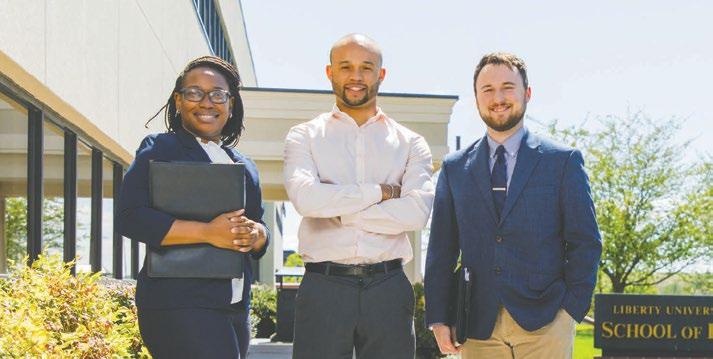
Discipline – Suspension – Sleeping with Client – Conflict of Interest – Domestic Relations – Representation
When the defendant-attorney be gan an extramarital affair with client C.T., the attorney was representing C.T. in divorce, alimony, equitable dis tribution, child support, and child cus tody matters. Significant harm – both financial and emotional – to C.T. was foreseeable to the attorney.
We affirm the Disciplinary Hear ing Commission’s (DHC’s) one-year suspension of defendant’s license to practice law.
Facts
On 9 March 2018, defendant and C.T. entered into a non-litigation cli ent agreement (the Initial Agree ment), pursuant to which defendant agreed, inter alia, to draft a consent order for equitable distribution, child custody and child support. The Initial Agreement also included seeking an absolute divorce as a covered service, if requested by C.T. Representation under the Initial Agreement was to terminate upon (1) entry of a court or der, (2) provision of covered services, or (3) C.T.’s failure to pay fees when
due.
On 3 August 2018, defendant and C.T. signed a litigation client agree ment (the Second Agreement), pursu ant to which defendant was to repre sent C.T. in matters of child custody and support. Although the Second Agreement explicitly excluded seek ing a divorce from its covered services, no language in the Second Agreement superseded or nullified the Initial Agreement.
On Saturday, 4 August 2018, sens ing a mutual attraction, defendant broke with his usual practice and took a Consent Order to C.T.’s home so she could sign the order.
After the Consent Order was signed, defendant asked C.T. if he could kiss her. She consented, and the two “made out” on the couch. Defendant moved his hand under C.T.’s dress, touching her leg, and he “snapped” her undergarment.
At some point, C.T. asked de fendant to stop, and defendant left. Thereafter, C.T. and defendant had several lengthy late-night phone calls.
C.T.’s husband signed the Consent Order. On 28 August 2018, the Con sent Order was filed and signed by a judge. The Consent Order allowed de fendant to withdraw as counsel, but there is no evidence that he did so.
Defendant and C.T. began having sexual intercourse by mid-September.
On 24 September 2018, defendant signed a divorce complaint on behalf of C.T. as the attorney of record. He also filed a motion for summary judgment and represented C.T. at the hearing on the motion. A divorce judgment was entered on 2 November 2018.
The DHC found that defendant had violated the Rules of Professional Con duct by attempting to engage in sexu al relations with a current client and by continuing to represent the client after they began a romantic relation ship.
Discussion
The issue of whether an inherent conflict of interest exists when an at torney engages in sexual relations with his or her divorce client has not been decided in North Carolina, and we need not decide it here. Nonethe less, we note other jurisdictions have concluded that when an attorney en gages in consensual sexual relations with a divorce client where child cus tody, child support, alimony, and di vision of marital asserts are to be de cided, there is a per se violation of the rules of professional conduct.
A sexual relationship between an attorney and his or her divorce cli ent may cause, or threaten to cause, significant harm to the client and the profession alike. Here, significant harm – both financial and emotional –to C.T. was foreseeable to defendant. The DHC found C.T. to be “especially vulnerable” considering she was fac ing divorce and experiencing “signifi cant turmoil” associated with her new single-parent status.
There were also allegations that defendant’s wife threatened to bring a claim against C.T. for alienation of affection. To limit harm to C.T., de fendant convinced his wife to sign a
settlement agreement, which waived defendant’s and his wife’s rights to bring third-party claims, including claims for alienation of affection. Nev ertheless, defendant’s relationship with C.T. had the potential of causing significant financial harm to C.T. as her relationship with defendant ex posed her to the risk of liability from a third party.
Furthermore, C.T. sought advice from independent legal counsel re garding potential malpractice claims relating to the Consent Order that defendant negotiated just prior to attempting to have sexual relations with C.T. C.T. testified the Consent Order was not in her best interest be cause it did not allow her to claim both of her children on her tax returns and did not provide adequate child sup port. We do not foreclose the possibil ity that defendant’s professional judg ment in finalizing the Consent Order may have been impaired, as evidenced by his desire to immediately kiss C.T. after she signed it.
We reject defendant’s challenge to the DHC’s finding of fact 4: “At the time Defendant began an intimate re lationship with C.T., it was foreseeable that his actions would undermine the
fiduciary relationship that he shared with her. By choosing to undermine the fiduciary attorney-client relation ship, Defendant intentionally caused harm to the client and the profession.”
Other Issues
N.C. R. Pro. Conduct 8.4(a) pro vides, “It is professional misconduct for a lawyer to . . . violate or attempt to violate the Rules of Professional Conduct.” Although the rules do not require application of the elements of criminal attempt to an attorney disci plinary action, we have done so in the past, and the DHC did not err in do ing so here. Where defendant went to C.T.’s home, kissed her, touched her leg under her dress, and snapped her undergarment against her body, and where defendant did not have sexual intercourse with C.T. because C.T. did not want to “go any further,” the re cord supports the DHC’s finding that defendant attempted to violate Rule 1.19(a), which prohibits a lawyer from “hav[ing] sexual relations with a cur rent client of the lawyer” unless “a consensual sexual relationship exist ed between the lawyer and the client
NORTH CAROLINA LAWYERS WEEKLY I October 10, 2022 OPINION DIGESTS / 7
See Page 8 ► 92% (2019) INSPIRE THE PROFESSION. INNOVATE THE PRACTICE. IMPACT THE WORLD. � LawCareer@liberty.edu � (434) 592-6068 � Liberty.edu/Law /LibertyUniversityLaw At Liberty University School of Law, we provide unparalleled skills training to produce practice-ready graduates who will become lawyers of distinction. We promote a culture that cultivates both integrity and high ethical standards to ensure our graduates are ready to lead in their communities. Three consecutive years of high bar passage rate for first-time takers: 95% (2018) 92% ( July-Oct. 2020)
before the legal representation com menced.”
Even though the Consent Order allowed defendant to withdraw, since there is no indication that he did so, and since he continued representing C.T. before the trial court, we reject defendant’s assertion that the DHC erred in finding that he continued to represent C.T. after they began a ro mantic relationship.
Affirmed.
North Carolina State Bar v. Mer ritt (Lawyers Weekly No. 011-147-22, 34 pp.) (Jeffery Carpenter, J.) Ap pealed from the Disciplinary Hear ing Commission. David Johnson for plaintiff; Lucky Narain for defendant. 2022-NCCOA-633


Criminal Practice
Cruelty to Animals – Arson – Malice –Knowledge
Defendant was convicted of seconddegree arson for setting fire to the home of his sister’s boyfriend. Since the offense of second-degree arson in cludes the element of malice, the state was not required to prove defendant intentionally and maliciously killed the boyfriend’s puppy, who died in the fire.
We find no error in defendant’s con victions for second-degree arson and felonious cruelty to animals.
G.S. § 14-360(b) provides that “[i]f any person shall maliciously . . . kill, or cause or procure to be . . . killed, any animal, every such offender shall for
every such offense be guilty of a Class H felony.” One who merely acts mali ciously is guilty of felonious cruelty to animals under § 14-360(b) if that act causes any animal to be killed.
Defendant was convicted of seconddegree arson, which required the jury to find that defendant willfully and maliciously burned the dwelling of an other while the dwelling was unoccu pied. The jury thus needed to conclude only that defendant maliciously set fire to the boyfriend’s house and that the fire proximately caused the pup py’s death in order to support a con viction of felonious cruelty to animals under § 14-360(b). Accordingly, the trial court did not err in so instructing the jury.
Defendant also argues that the animal cruelty indictment failed to al lege that the act was carried out “ma liciously.” However, adequate notice was provided by the accompanying charge for second-degree arson, which explicitly alleged that defendant “un lawfully, willfully and feloniously did maliciously burn the dwelling.” The indictment provided defendant with sufficient certainty of the offense com mitted, such that he was in no danger of subsequent prosecutions, nor would he be unable to prepare a defense.
Defendant further asserts that the “intentional” element was missing from the indictment. We disagree.
The indictment alleged that de fendant “unlawfully, willfully and feloniously did kill an animal.” Our Supreme Court has observed that the meaning of the word willfully “[as] used in a statute creating a criminal offence, means something more than an intention to do a thing. It implies .
.
. doing the act purposely and deliber ately, indicating a purpose to do it, . . . and it is this which makes the crimi nal intent.” State v. Dickens, 215 N.C. 303, 1 S.E.2d 837 (1939). Thus, as used in the indictment, the word “will fully” adequately expresses that the offense requires an intentional act.
An indictment need only provide an adequate expression of the charge; therefore, this indictment was suffi cient to confer subject matter jurisdic tion on the trial court.
No error.
State v. Charles (Lawyers Weekly No. 011-148-22, 12 pp.) (Jefferson Griffin, J.) Appealed from Cumber land County Superior Court (James Ammons, J.) Haley Cooper for the state; Danielle Blass for defendant. 2022-NCCOA-628
Criminal Practice

Attempt to Harm a Police Animal –Serious Harm – Spear & Knife – Jury Instructions
In response to a call from defen dant’s family that defendant was at tempting self-harm, police tried to de-escalate the situation, but – when those attempts failed – the police threatened to send police dog Storm into defendant’s room to disarm him of his knife and makeshift spear. In response, defendant threatened to kill himself, the police and Storm. When Storm entered defendant’s room, defendant contends he was acting in self-defense in thrusting first the spear and then the knife at Storm. The purported defensiveness of defen
dant’s actions does not negate or con flict with evidence that he intended serious harm to Storm.
We find no error in defendant’s con viction of attempting to cause serious harm to a law enforcement agency animal.
Defendant also argues that the trial court committed plain error in failing to give an instruction on self-defense. Though defendant acknowledges that a self-defense instruction is unavail able when the defensive actions were taken against a law enforcement offi cer “lawfully acting in the performance of his or her official duties,” Gen. Stat. § 14-51.3(b), he contends that the po lice officers were not acting in further ance of any official duties “[b]ecause it was not apparent what, if any, crime [defendant] was committing by lock ing himself in his own bedroom with a knife at the time the police kicked in his door and commanded Storm to attack him.” We disagree.
Law enforcement’s official duties extend beyond investigating crime. Defendant does not cite, and we can not find, any North Carolina caselaw where a police response to a domes tic disturbance or an emergency call involving threats of self-harm was deemed outside law enforcements’ of ficial duties. Law enforcement’s ordi nary and lawful duties are not strictly limited to investigating crimes, and they can include responding to a re quest for emergency assistance with an armed person threatening selfharm. Defendant’s plain error argu ment—premised entirely on the claim
The insider’s guide to selling a law practice, transferring ownership, and designing a great Life After Law, written by two of the top authorities in succession planning.
“
Practical. Readable. Motivating. “Designing a Succession Plan” is an invaluable resource and planning guide. Solo and small firm partners will be especially interested in the sections on valuing and selling a law firm. All lawyers will appreciate the practical, expert advice outlining the options that await lawyers in this next phase.
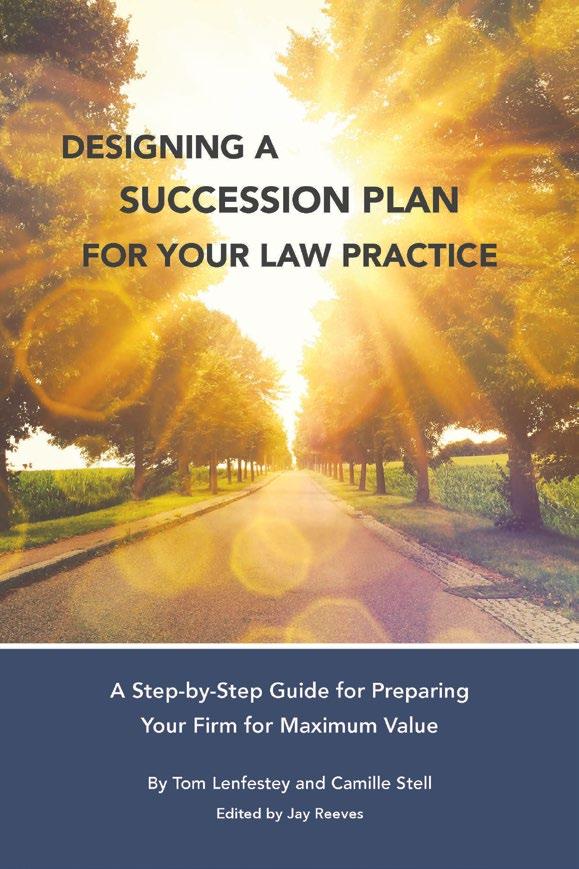 — Joan H. Feldman, Editor/Publisher, Attorney at Work
— Joan H. Feldman, Editor/Publisher, Attorney at Work
NORTH CAROLINA LAWYERS WEEKLY I October 10, 20228 / OPINION DIGESTS
Continued from 7 ► See Page 9 ► WWW.LAWYERSMUTUALCONSULTING.COM 1.800.662.8843 Learn more and see additional resources at WWW.DESIGNINGASUCCESSIONPLAN.COM HELPING LEGAL PROFESSIONALS EVOLVE AND THRIVE
that “it was not apparent what, if any, crime [defendant] was committing”— therefore fails.

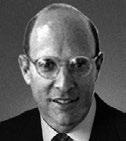
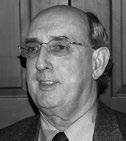

No error.
State v. Pierce (Lawyers Weekly No. 011-149-22, 13 pp.) (Lucy Inman, J.) Appealed from Randolph County Superior Court (James Hill, J.) Kayla Britt for the state; Warren Hynson for defendant. 2022-NCCOA-631





Criminal Practice
Restraints at Trial – Jury Instructions –Appeal Waiver

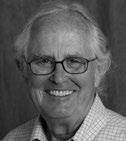

Even though the trial court failed to instruct the jury that defendant’s shackles were “not to be considered in weighing evidence or determin ing the issue of guilt” as required by G.S. § 15A-1031(3), defendant has not pointed to anything in the record to suggest the jury was even aware of defendant’s restraint. The trial court primarily followed its statutory man date, and defendant has failed to show prejudice.
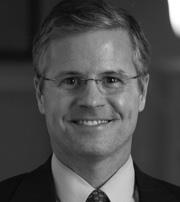


In any event, neither defendant nor defense counsel objected to the restraint when given the opportunity to do so. Consequently, defendant waived any error which may have been committed.
We find no error in defendant’s conviction for assault with a deadly weapon with intent to kill inflicting serious injury. We dismiss defendant’s untimely appeal of the trial court’s de nial of his motion for appropriate re lief.
State v. Slaughter (Lawyers Week ly No. 011-150-22, 7 pp.) (Jefferson Griffin, J.) Appealed from Chero kee County Superior Court (William Coward, J.) Robert Montgomery for the state; Kirby Smith for defendant. 2022-NCCOA-632
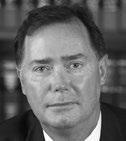

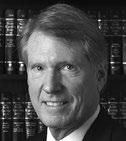


Criminal Practice
Obstructing a Public Officer – Gas Sta tion Disturbance – Refusal to Provide ID
When responding to a call from one gas station customer that another cus tomer (defendant) was using profanity, a police officer found defendant argu ing with the gas station attendant over the gas pump, which was spilling fuel because the hose was over-extended. In response to the officer’s request for his ID, defendant produced only a card bearing his initials, surname, title, telephone number and a quote from City of Houston v. Hill, 482 U.S. 451 (1987) (“The freedom of individuals verbally to oppose or challenge police action without thereby risking arrest is one of the principal characteristics by which we distinguish a free nation from a police state.”). Defendant’s con tinued refusal to produce any other identification constituted willful ob struction of the officer’s attempt to dis charge a duty of their office.
We find no error in defendant’s con viction of willfully resisting, delaying, or obstructing a police officer.
The elements of the offense of re sisting, delaying, or obstructing a public officer are (1) the victim was a public officer; (2) the defendant knew or had reasonable grounds to believe
the officer was a public officer; (3) the officer was lawfully discharging or at tempting to discharge a duty of his office; (4) the defendant resisted, de layed, or obstructed the officer in dis charging or attempting to discharge a duty of his office; and (5) the defendant acted willfully and unlawfully, that is intentionally and without justification or excuse. The first two elements are not at issue in this case.
Lawful Discharge of Duties
Viewing evidence in the light most favorable to the state, Officer Jordan Cruse could have reasonably believed defendant was the subject of the dis turbance dispatch, verified that infor mation with the caller, and observed and articulated facts sufficient to ap proach defendant to request identi fication. Upon arrival, Officer Cruse initially spoke with the caller who had reported defendant was harassing him. The caller specifically identified defendant as that person. Defendant was observed engaging in aggressive behaviors toward the gas station atten dant. When Officer Cruse approached defendant in the investigation of the disturbance call, reasonable suspicion existed. Officer Cruse was lawfully discharging his law enforcement du ties and within his rights to confront and request defendant’s identity.
Resisting, Delaying or Obstruct ing
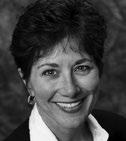
Defendant wrongfully relies upon case law attempting to attribute de fendant’s breach of the peace and ha rassing and threatening conduct with that of mere questioning or criticism. Defendant argues his actions merely
apprised the officers of his constitu tional rights.
Defendant has no right to breach the peace on private or public property or to harass others to constitutionally “express himself.” Also, defendant’s harassing customers, arguing with employees, and spilling flammable fuel on private property are indepen dent grounds for other potential charg es and crimes to warrant the officer’s request for identification.
The failure by an individual to pro vide personal identifying information during a lawful stop constitutes resis tance, delay, or obstruction within the meaning of G.S. § 14-223. Actions or even language which causes delays or obstruction in an officer’s investigation can constitute this offense.

Defendant’s actions prevented and obstructed Officer Cruse from conduct ing a proper and prompt investigation into the alleged disturbance. Defen dant refused to provide verifiable iden tification and delayed officers’ ability to promptly investigate and resolve the call. While defendant did in fact attempt to give Officers Cruse and Jordan Fuquay a card with purported information, that was not immediate ly verifiable as accurate. The officers were unable to ensure accurate infor mation was presented to investigate the disturbance dispatch, close out the call, and complete their report.
Together with the totality of all the evidence, defendant’s refusal to pro vide verifiable identification to law enforcement is for a jury to decide whether his conduct amounted to re sisting, delaying, or obstructing the of
NORTH CAROLINA LAWYERS WEEKLY I October 10, 2022 OPINION DIGESTS / 9
Dailey J. Derr Durham (919) 419-1265 Thomas C. Duncan Greensboro (336) 274-7243 William A. Eagles Greensboro (336) 433-9980 Michael W. Drye Asheville (828) 298-1484 Marshall A. Gallop Jr. Rocky Mount (252) 937-2200 Ellen R. Gelbin Winston-Salem (336) 945-0214 Henry W. Gorham Emerald Isle (919) 805-5003 William H. Freeman Winston-Salem (336) 722-8872 Jonathan Harkavy Greensboro (336) 370-4200 Sherman Lee Criner Wilmington (910) 251-0004 Melinda Evans Chapel Hill (919) 593-5167 Lynn G. Gullick Greensboro (336) 686-4336 James L. Conner II Raleigh (919) 313-4571 Sarah V. Corley Asheville (828) 232-2800
Anne
Duvoisin Blowing Rock (828) 295-7469 Kate Deiter-Maradei Raleigh (919) 400-4087 Paul T. Flick Raleigh (919) 809-7346 Scott C. Hart New Bern (252) 633-3131 More than 60 attorneys have been recognized by the National Academy of Distinguished Neutrals for Excellence in the field of Alternative Dispute Resolution The NC Academy is the local chapter of the National Academy of Distinguished Neutrals, a nationwide association of mediators and arbitrators who have substantial experience in the resolution of commercial and civil disputes. All members have been recognized for their accomplishments through the Academy’s peer nomination system and extensive attorney-client review process. Membership is by invitation only and is limited to individuals who devote a substantial percentage of professional efforts to ADR practice. To access our FREE National Directory, please visit www.NADN.org/directory and select your preferred state. For a FULL roster of ADR attorneys and to check AVAILABLE DATES online visit www.NCMediators.org/dateselector and select your case criteria Wayne P. Huckel Charlotte (704) 333-0073 Patricia L. Holland Raleigh (984) 232-8014 Joseph T. Howell Raleigh (919) 365-6000 Continued from 8 ► See Page 10 ►
ficers. Defendant’s conduct and refusals tend to show the investigation was obstructed or delayed the release of other witnesses as Officer Cruse was unable to conduct a lawful investigation and complete the call.
As noted, Officer Cruse arrived in uniform, identified himself, and was properly investigating and lawfully conducting a complaint of defendant’s actions breaching the peace on private property, by threatening and harassing others. By refusing to identify himself and cooperate with Officer Cruse’s investigation, sufficient evidence of this element was presented tending to show and for the jury to find defendant resisted, delayed, or obstructed the officer in discharging or attempting to discharge a duty of his office to survive defendant’s motion to dismiss.
Willful & Unlawful Conduct
Defendant’s card did not provide a legal name, photo, date of birth, address, or any other identifying information, other than initials and a last name. Defendant’s vehicle also displayed out-of-state license plates preventing officers from immediately verifying identity and ownership, until his out-of-state driver’s license was retrieved from inside the vehicle.
The state’s evidence also tends to show defendant was the identified subject of the investigation, was observed harassing others, spewing profanities and verbal bile, spilling gasoline on private property, and being uncooperative by refusing to offer information to delay and prolong the officers’ investigation. Defendant was the subject of the investigation and not a mere bystander in a public place. Defendant argues nothing to grant a pre-emptive dismissal based on any justification or lack of willfulness.
Viewing the evidence in the light most favorable to the state, substantial evidence tends to show that defendant acted willfully and unlawfully and was intentional and without justification or excuse.

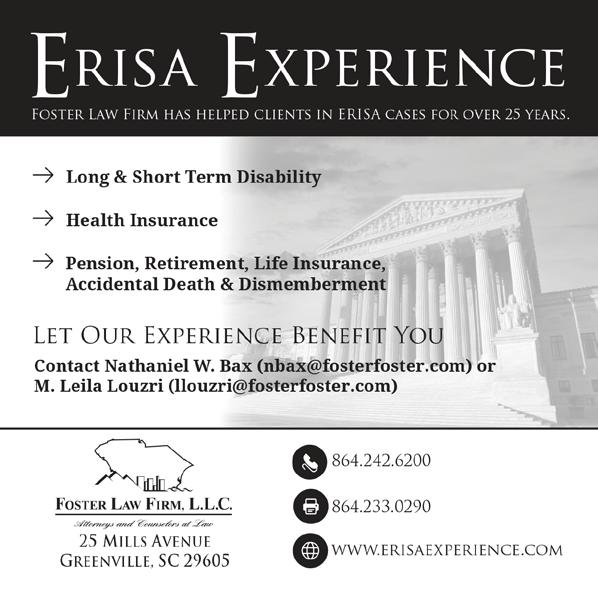
The trial court did not err by denying defendant’s motion to dismiss.
Other Issues
Since defendant had validly waived counsel in district court, the superior court did not err in allowing defendant to represent himself.



Where defendant (1) failed to request a jury instruction on justification or excuse, (2) agreed with the trial court’s instructions, and (3) failed to object prior to or after the instructions were given to the jury, any error in the trial court’s failure to instruct the jury
on justification or excuse constitutes invited error.
No error.
State v. Harper (Lawyers Weekly No. 011-151-22, 22 pp.) (John Tyson, J.) (Lucy Inman, J., concurring in the result without separate opinion) Appealed from Pitt County Superior Court (Thomas Haigwood, J.) Juliane Bradshaw for the state; Warren Hynson for defendant. 2022-NCCOA-630
Criminal Practice
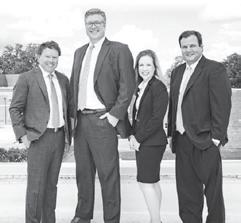
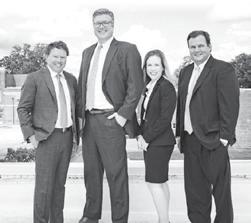
Sentencing – Drug Convictions – Conditional Discharge – Joined Offenses



At the same trial, defendant was convicted of both possession of cocaine and sale of cocaine; the trial court sentenced defendant to an active sentence for the sale offense and a suspended sentence for the possession offense. Since defendant otherwise qualified for a conditional discharge under G.S. § 90-96(a), and since these drug offenses were joined for prosecution, defendant had not “previously been convicted” of a relevant offense, so G.S. § 90-96(a) required the trial court to grant defendant a conditional discharge unless the court determined with a written finding, and with the
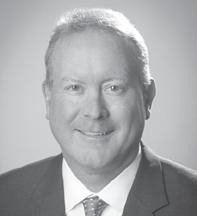
agreement of the district attorney, that defendant was inappropriate for a conditional discharge for factors related to the offense.


We find no error in defendant’s convictions but remand for resentencing.
The meaning of § 90-96(a)’s phrase, “previously been convicted of”, is not defined by statute.
In State v. West, 180 N.C. App. 664 (2006), appeal dismissed, disc. rev. denied, 361 N.C. 368 (2007), we analyzed whether G.S. § 15A-1340.11(7) permits the consideration of joined convictions. Section 15A-1340.11(7) states, “A person has a prior conviction when, on the date a criminal judgment is entered, the person being sentenced has been previously convicted of a crime[.]” We held “that the assessment of a defendant’s prior record level using joined convictions would be unjust and in contravention of the intent of the General Assembly.” We also said that “the ‘rule of lenity’ forbids a court to interpret a statute so as to increase the penalty that it places on an individual when the Legislature has not clearly stated such an intention.”
Given the similarity of the language in § 15A1340.11(7)—stating “the person being sentenced has been
NORTH CAROLINA LAWYERS WEEKLY I October 10, 202210 / OPINION DIGESTS
Continued from 9 ► See Page 11 ► LAWYER TO LAWYER / Directory We are always grateful for referrals and value our co-counsel relationships. Call John Alan Jones or Forest Horne to discuss a possible relationship at (800) 662-1234. All inquiries held in the strictest confidence. Helping People Is What We Do. MartinandJones.com 800.662.1234 Mesothelioma & Lung Cancer Serious Personal Injury Tractor Trailer Collisions Workers’ Compensation Defective Medical Devices Harmful Drugs & Products Medical Malpractice Serving all of North Carolina with offices in Raleigh, Durham and Wilmington. Your business partner. Serving Eastern NC 252.633.1930 www.olivercheek.com • All Chapters of Bankruptcy • Alternatives to Bankruptcies • Receiverships Tough Times Require Trusted Lawyers • All Chapters of Bankruptcy • Alternatives to Bankruptcies • Receiverships John P. Marshall COMMERCIAL & CONSTRUCTION LITIGATION 106 S. McLewean Street P.O. Box 3169 Kinston, NC 28502-3169 252.527.8000 x245 Fax: 252.527.8128 jmarshall@whiteandallen.com
previously convicted of”— and the lan guage in § 90-96—stating “any person who has not previously been convicted of”—we conclude the reasoning from West similarly applies to § 90-96 to prohibit consideration of the joined convictions in determining whether a defendant was previously convicted of an applicable offense.
Section 90-96 does not clearly state an intent to consider joined convic tions in determining the applicability of the statute; thus, the rule of lenity forbids us from interpreting § 90-96 to increase the penalty it places on defen dants.
Section 90-96 applies to defendant despite his joined conviction because said joined conviction does not consti tute a previous conviction. Further more, the remaining requirement of § 90-96 is satisfied for defendant, as he was convicted of felony possession of cocaine under G.S. § 90-95(d)(2). Therefore, the trial court was required to provide conditional discharge in ac cordance with § 90-96 unless the trial court and the state agreed that it was inappropriate for defendant.
Since there was no discussion what soever of § 90-96, the appropriate rem edy is to vacate the sentence entered by the trial court and remand for re sentencing.
Other Issues
Even though the state’s expert did not use the words “chemical analysis,” he explicitly testified to using a “gas chromatography mass spectrometry test,” which we have previously held to be testimony of performing a chemi cal analysis.
Given the overwhelming video and eyewitness testimony that defendant actually possessed cocaine, he cannot show prejudice resulting from the trial court’s instruction of the jury as to both actual and constructive possession.
No error in part, remanded for re sentencing.
State v. Campbell (Lawyers Week ly No. 011-152-22, 21 pp.) (Hunter Murphy, J.) Appealed from Mecklen burg County Superior Court (Jesse Caldwell, J.) Matthew Baptiste Hollo way for the state; William Spence for defendant. 2022-NCCOA-627
Criminal Practice
Identity Theft – Insufficient Evidence –Fictional Person
Defendant admitted that, when he went to the hospital, he gave a false name in order to avoid arrest for a prior failure to appear; however, de fendant also said the information he gave – the name David Bostic and the birthdate 24 September 1972 – did not belong to a real person. Although the state presented a witness named David Bostic, who testified that he did not visit the hospital on the relevant date and had not given defendant permission to use his identity, he also testified that his date of birth was 28 May 1975. As the state concedes, it did not present sufficient evidence to prove that defendant knowingly used identifying information of another person, with the intent to fraudulently represent that he was the other person for the purpose of avoiding legal con sequences, as required by G.S. § 14113.20(b).
We vacate defendant’s conviction of identity theft.
State v. Faucette (Lawyers Weekly No. 011-153-22, 9 pp.) (Hunter Mur phy, J.) Appealed from New Hanover County Superior Court (Richard
Kent Harrell, J.) Asher Spiller for the state; William Spence for defendant. 2022-NCCOA-629
Civil Practice
Sanctions – Discovery & Preliminary In junction Violations – Breach of Contract – Exclusivity Provision
Plaintiff filed a complaint alleg ing that defendants had violated the exclusivity provision of the parties’ contract by marketing competitors’ services and by diverting plaintiff’s customers to its competitors. In this litigation, defendants have purpose fully delayed the administration of this case, abused the judicial process and caused substantial harm to plain tiff by (1) improperly removing this case to federal court (where defen dants were sanctioned), (2) improp erly filing an interlocutory appeal of this court’s preliminary injunction order (PI Order) after notice that the PI Order did not affect a substantial right, (3) consistently and obstinately refusing to comply with their discov ery obligations without any legal jus tification, (4) failing to comply with this court’s order compelling discovery (Compel Order) within the compliance deadlines set by the court, (5) making false statements to the court about their compliance with the PI Order, and (6) repeatedly and willfully vio lating the PI Order by, inter alia, con tinuing to divert business to plaintiff’s competitors.
Defendants’ constant and ongoing misconduct was not deterred by the court’s prior award of $28,715.34 in attorneys’ fees pursuant to the Com pel Order. The court finds that lesser sanctions would neither deter defen dants’ misconduct nor fairly address the unrelenting defiance of the court’s orders. Consequently, the court con cludes, in the exercise of its discretion, that the severest sanctions are neces sary.
The court grants plaintiff’s mo tion for sanctions. The court strikes defendants’ answer, including all af firmative defenses and counterclaims asserted therein, and enters default against defendants. The court also awards plaintiff its attorneys’ fees in curred in (1) investigating the conduct necessitating the sanctions motion and plaintiff’s supplemental sanctions brief and (2) seeking and obtaining the relief afforded through the sanctions motion and supplemental sanctions brief, including prosecuting the sanc tions motion and the matters raised in the supplemental sanctions brief.
Total Merchant Services, LLC v. TMS NC, Inc. (Lawyers Weekly No. 020-051-22, 34 pp.) (Louis Bledsoe, C.J.) Joshua Gunnemann, Thomas Segars and Jeremy Falcone for plain tiff; Nichole Hatcher and Erik Lind berg for defendants. 2022 NCBC 51
Tort/Negligence
Hospital Billing – No Fiduciary Duty – Unfair Trade Practices – Learned Profession
Even though the defendant-hos pital’s billing practices are too far removed from plaintiff’s medical treatment to place the parties in a fiduciary relationship, the hospital’s billing practices nevertheless fall into the learned profession exception to li ability for unfair trade practices.
We grant defendant’s motion to dismiss plaintiff’s claims for breach of fiduciary duty, constructive fraud and
unfair trade practices. Defendant con cedes plaintiff has sufficiently plead ed his claim for breach of contract.
Plaintiff sought emergency treat ment from the defendant-hospital. After his discharge, he received a bill for $4,413.48, including an uninsured balance of $2,667.96. Plaintiff alleges that he was charged $2,667.96 for a CT scan, even though the hospital’s online price estimator says the price for such a scan is $205.58 and the na tional average is $449.
Breach of Fiduciary Duty
Plaintiff contends that his rela tionship with the hospital is de jure fiduciary. However, the fiduciary duty plaintiff seeks to establish arises from the hospital’s charges and billing practices, not from the care the hospi tal provided to him. The billing rela tionship is one of debtor and creditor, which our courts have made clear is not a de jure fiduciary relationship.
Nor has plaintiff shown that the hospital was a de facto fiduciary. Gen eral contractual relationships do not typically rise to the level of fiduciary relationships.
Plaintiff received medical care for his injuries at the hospital’s emergen cy room. Plaintiff pleads that the hos pital “occupied a position of superior power and influence” over him in the hospital’s subsequent billing. How ever, plaintiff does not plead any facts to support that claim. He does not challenge the adequacy of the medi cal care he received or question the medical knowledge of the hospital’s staff; he challenges only the amount he was billed after the services were rendered, and he provides insufficient facts to plead the substantial differ ence in bargaining power our courts require to establish that he had a de facto fiduciary relationship with the hospital.
To the contrary, plaintiff pleads that he “agreed to pay [the hospital] an unspecified sum representing the uninsured portion of the costs of care as a [hospital] patient,” and contends that the hospital “breached its con tract with Plaintiff by charging him rates that far exceeded its own pub lished rates, as well as other compa rable rates from other providers, for the services it provided.” Plaintiff’s relationship with the hospital for its charges is thus defined by contract, and plaintiff alleges no facts that sug gest that the parties’ billing relation ship imposed duties on either party beyond those contract duties.
Plaintiff’s contentions that the hospital had a fiduciary duty not to “goug[e]” him with charges for “emer gency and imaging services far in ex cess of local or national rates” and “to disclose its billing rates and practices before performing services on Plain tiff’s behalf” are duties arising from the parties’ contract, not duties aris ing from a fiduciary relationship be tween them.
Since plaintiff has not pleaded facts showing a fiduciary relation ship between him and defendant, his claims for breach of fiduciary duty and constructive fraud fail.
Unfair Trade Practices
G.S. § 75-1.1 prohibits unfair prac tices “in commerce,” but “commerce” “does not include professional servic es rendered by a member of a learned profession.”
The court must determine whether the hospital’s alleged conduct is suf ficiently related to the provision of patient care to fall within the learned profession exemption. The court con cludes that it is.
As an initial matter, the hospital’s bills reflect the hospital’s charges for the medical care plaintiff received in the emergency room; in that way, they directly relate to the provision of plaintiff’s medical care. In addition, plaintiff’s unfair trade practices claim based on those charges challenges not only the amounts the hospital charged, but also the hospital’s con duct in not disclosing those charges in the course of rendering its emergency and imaging services to plaintiff.
The hospital’s alleged misconduct here—overbilling without disclosing its actual rates to plaintiff at the time of treatment—is entwined with, and directly tied to, the provision of plain tiff’s medical care at the hospital’s emergency room.
Particularly given our appellate courts’ expansive interpretation of the learned profession exemption in the healthcare field, the court concludes that plaintiff’s unfair trade practices claim is sufficiently tied to the provi sion of patient care to fall within the exemption’s reach.
Motion granted in part, denied in part.
McNew v. Fletcher Hospital, Inc. (Lawyers Weekly No. 020-053-22, 18 pp.) (Louis Bledsoe, C.J.) Charles Mc New for plaintiff; Philip Pence, Phil lip Jackson, John Noor and David Hawisher for defendant. 2022 NCBC 53
NORTH CAROLINA LAWYERS WEEKLY I October 10, 2022 OPINION DIGESTS / 11
Continued from 10 ► STATEMENT OF OWNERSHIP, MANAGEMENT AND CIRCULATION North Carolina Lawyers Weekly; Publication number 002-904; Complete Mailing Address of Known Office of Publication: 130 N. McDowell St., Unit B, Charlotte, NC 28204; the mailing address of Headquarters or General Business Offices of the Publisher (Not printer), North Carolina Lawyers Weekly, 130 N. McDowell St., Unit B, Charlotte, NC 28204; Full Names and Complete Mailing Addresses of Publisher, Editor, and Managing Editor: Publisher – Liz Irwin, 130 N. McDowell St., Unit B, Charlotte, NC 28204; Editor – Jason Thomas, 130 N. McDowell St., Unit B, Charlotte, NC 28204; Managing Editor – None. North Carolina Lawyers Weekly is owned by BridgeTower OPCo, LLC (OpCo), 100 N Pacific Coast Hwy., Ste 1725, El Segundo, CA 90245. Known Bondholders, Mortgagees, and Other Security Holders Owning or Holding 1 Percent or More of Total Amount of Bonds, Mortgages, or Other Securities, Cerberus Business Finance Agency, 11812 San Vicente Blvd, Suite 300, Los Angeles, CA 90049. Issue Date for Circulation Data Below, August 29, 2022; the average number of copies of each issue during the preceding 12 months Box 15 is: (A) total copies printed 1,667; (B1) Paid Outside-County Mail Subscriptions 1,264; (B2) Paid In-County Subscriptions: 209; (B3) Sales through dealers and carriers, street vendors, counter sales: 0 (B4) Other classes mailed USPS: 5; (C) Total Paid Circulation: 1,478; (D1) Free Distribution by mail, samples complimentary and other free copies: 30; (D2) In-county free distribution: 3; (D3) Other classes mailed Free Distribution: 0; (D4) Free distribution outside the mail: 0; (E) Total Free distribution: 33; (F) Total Distribution: 1,511; (G) Copies not Distributed: 156; (H) Total: 1,667; (I) Percent of Paid: 97.81%. The actual number of copies of a single issue published nearest to the filing date is: (A) Total number of copies printed 1,554; (B1) Paid Outside-County Mail Subscriptions: 1,238; (B2) Paid In-County Subscriptions: 199; (B3) Sales through dealers and carriers, street vendors, counter sales: 0; (B4) Other classes mailed USPS: 3; (C) Total Paid Circulation: 1,440; (D1) Free Distribution by mail, samples complimentary and other free copies: 31; (D2) In county free distribution: 3; (D3) Other classes mailed Free Distribution: 0; (D4) Free distribution outside the mail: 0; (E) Total Free distribution: 34; (F) Total Distribution: 1,474; (G) Copies not Distributed: 80; (H) Total: 1,554; (I) Percent of Paid: 97.69% Electronic Copy Circulation; The Average number of copies in the last 12 months was: (16A) Paid Electronic Copies, 127; (16B) The Aver age Paid Print and Paid Digital Copies were 1,605; (16C) The Average Total Print and Paid Digital Distribution was 1,638; (16D) Percent Paid of Both Print & Paid Digital was 97.99%. Electronic Copy Circulation; The Actual Number of Copies of a Single Issue (16A) Paid Electronic Copies, 131; (16B) The Average Paid Print and Paid Digital Copies were 1,571; (16C) The Average Total Print and Paid Digital Distribution was 1,605; (16D) Percent Paid of Both Print & Paid Digital was 97.88%. I certify that all information furnished on this form is true and complete: (Signed) Liz Irwin, Publisher REQUIRED BY TITLE 39 U.S.C. 3685 STATEMENT SHOWING OWNERSHIP, MANAGEMENT AND CIRCULATION OF North Carolina Lawyers Bi-Weekly, publication number 002-904, filed October 1, 2022, Published Weekly, 26 issues per year, $399.00 annually at 130 N. McDowell St., Unit B, Charlotte, NC 28204. The General Business offices of the Publishers are at 130 N. McDowell St., Unit B, Charlotte, NC 28204.
ASK OUR CUSTOMERS!


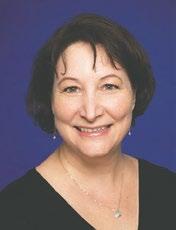
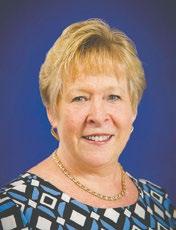
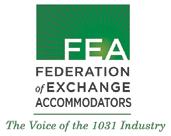
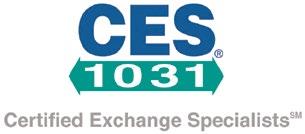




Subsidiary of Investors Title Company (NASDAQ – ticker symbol “ITIC”)984.364.2752 | exchanges@invtitle.com
“Rarely in our business is there truly only one choice in a partner/ relationship. But when it comes to 1031 exchanges, Investors Title is the ONLY option for us.” – Daniel S. Kadis, Centrex Properties, Inc. “Given the added risk associated with reverse exchanges, we have developed a great comfort level over the years working with the Investors Title team. We couldn’t imagine a better partner.” – George T. Barnes, Vanguard Property Group “Not only is the staff very responsive to my calls and emails, they are also very knowledgeable. With representation on the Board of Directors for the Federation of Exchange Accommodators, I know that I can rely on the exchange team for up-to-date advice and guidance on the unusual issues that always seem to come up.” – Donald VonCannon, Esq., Allman Spry Attorneys at Law CAROL HAYDEN, ESQ., CES® EVP ITEC/ITAC chayden@invtitle.com 919.945.2423 VICTORIA TEMPLETON, ESQ., CES® VP ITEC/ITAC Exchange Counsel vtempleton@invtitle.com 919.945.2400 Exclusively dedicated to the 1031 exchange business since 1988 – Investors Title Exchange Corporation provides exemplary qualified intermediary and exchange accommodation title holder services. u hundreds of exchanges facilitated every year u administered by a knowledgeable, experienced team of exchange attorneys and exchange specialists u transactional integrity ensured via • safety of funds through Fidelity bonding, strict internal controls, and independent audits • interest-bearing exchange accounts • fast, dependable service and document preparation 1031 EXCHANGE EXPERTISE DEDICATED EXCHANGE TEAM. EXCEPTIONAL SERVICE. Investors Title Exchange & Accommodation F-72 (3/2021) | GENP8520210301
































 — Joan H. Feldman, Editor/Publisher, Attorney at Work
— Joan H. Feldman, Editor/Publisher, Attorney at Work












































